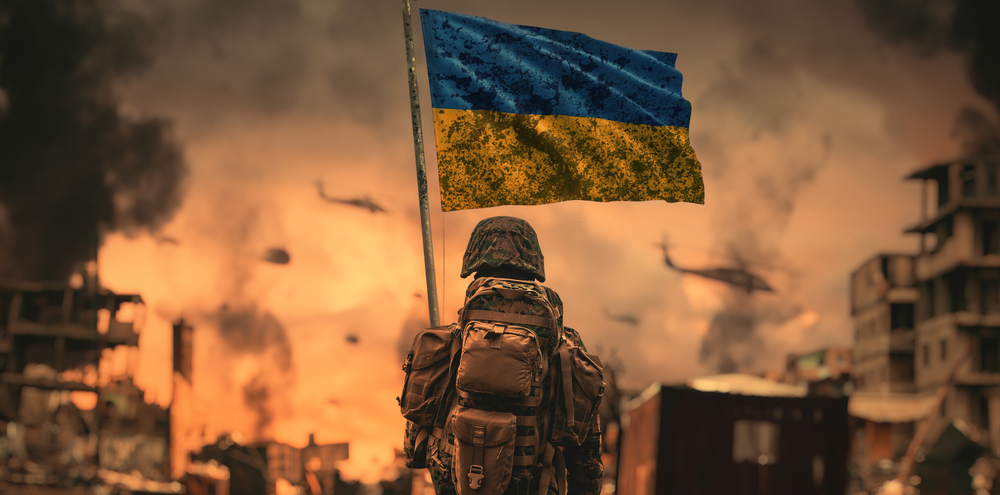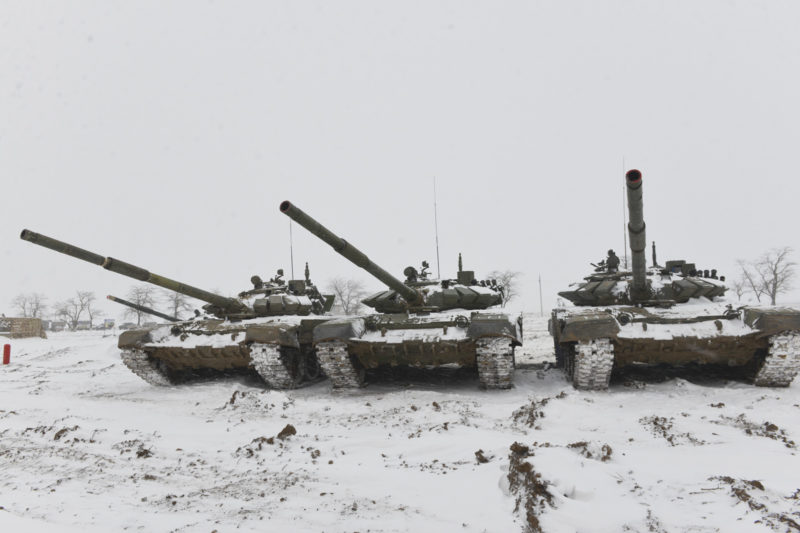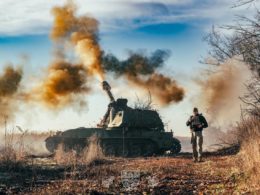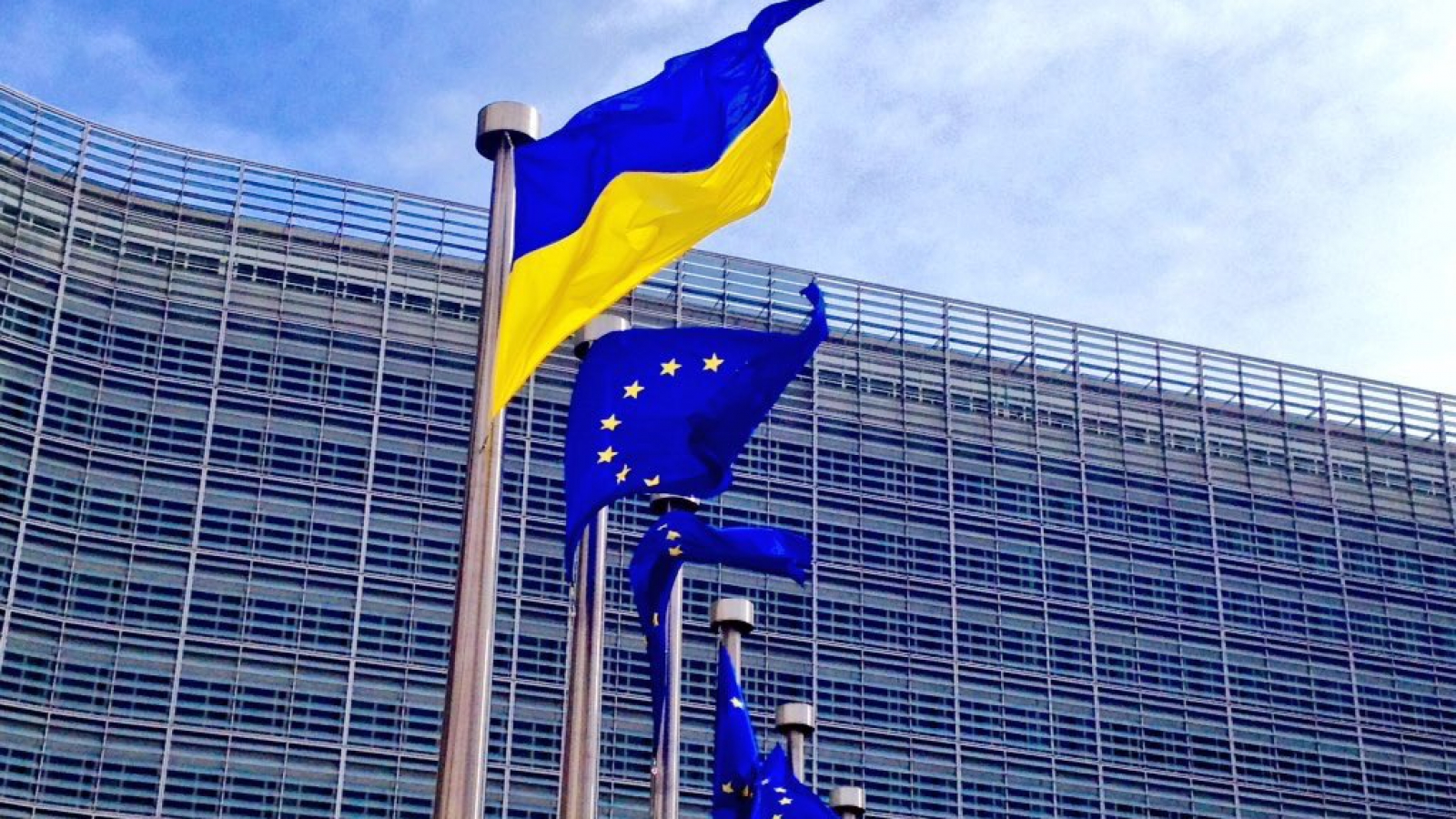After Ukraine unexpectedly resisted Putin's aggression, it seemed a certain consensus had formed in the West: Kyiv must be provided with all necessary military assistance in the joint struggle against the aggressor, who devised to change the world order.
However, gradually, military aid to Ukraine has become a subject of controversy in the US and EU, as their citizens are "tired of the war" and of Ukraine in general. Yet, the Russian dictator is still there, and Ukrainian soldiers are sacrificing their lives every day to contain his massive army.
So Euromaidan Press has decided to predict what will happen if Ukraine loses (spoiler: the war will not end). And to remind everyone who forgot: whatever the outcome of this war is, it will be shared. It will either be Ukraine's and the West's joint defeat or their joint victory.
Not everyone in the West grasps that Russia sees itself engaged in war with the US and its allies. A recent ECFR survey across nations revealed a perception gap: while most Americans and Europeans believe the US is not at war with Russia, Russians, and other respondents think a de facto war is underway between Russia and the Western coalition backing Ukraine.
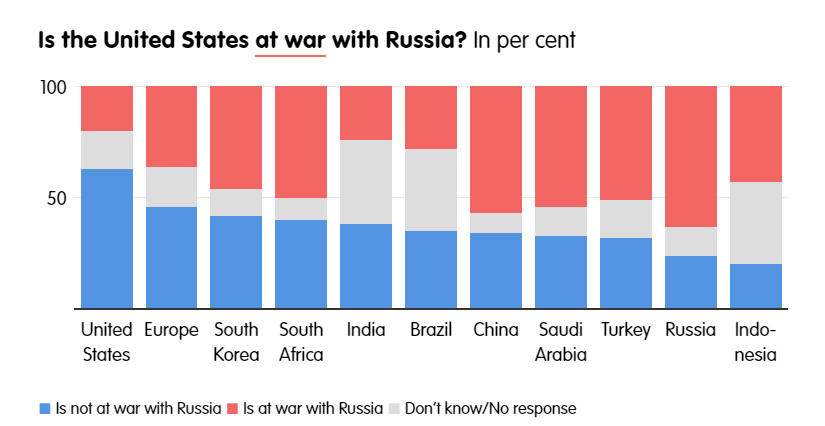
Some analysts argue the survey question is flawed since the US is in a conflict with Russia rather than directly at war. Still, the responses expose a divergence in perspectives.
In short, Russians, in their mindset, view themselves as battling the West in Ukraine and yearn for its defeat so intensely that they will tolerate extremely high losses. The Kremlin is convinced the West could not stomach comparable casualties. Recognizing this Russian outlook is vital for Western policymakers to comprehend Moscow’s actions and psychology.

1. The war in Europe will persist
Over the past 32 years since the USSR's collapse, Russia has initiated a dozen wars, with each conflict serving as a precursor to the next. This trend also applies to Ukraine.
In 2014, when Russia occupied Crimea and the Donbas region, the Western response was notably weak, according to Marcus Walker, the Southern Europe bureau chief at The Wall Street Journal. In contrast, shortly after that, Germany "rewarded" Russia with the Nord Stream-2 pipeline, sending a clear signal to Putin.
“Putin tends to test the West's reaction. If he sees strength, he steps back, if he sees weakness, then he exploits it. This is something that he has in common with another Russian leader he greatly admires, which is Stalin. If you look at what he [Putin] has actually behaved so far, in the last 20 years, weakness is escalatory, because it encourages him to go further,” noted Walker on a Spotify podcast.
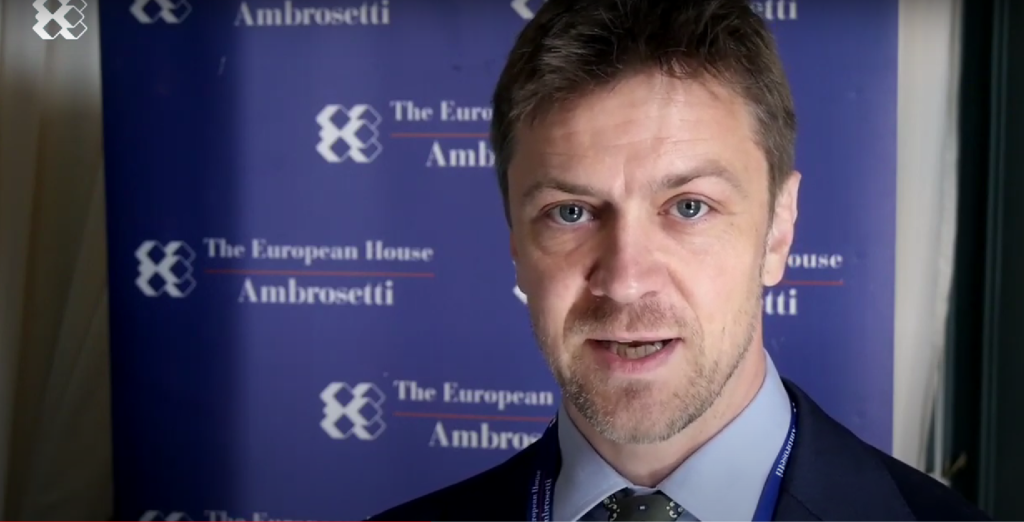
The subjugation of Ukraine would open the door to further Russian expansion. According to American strategist Peter Zeihan, who in 2015 accurately predicted a full-scale Russian invasion in Ukraine, the Kremlin seeks to reclaim territory strategically positioned within the former Soviet Union.
Zeihan details the necessity of controlling nine key access points into Russia's vast flatlands: the Tien-Altay Gap, the Central Asian Corridor, the two Caucasus coastal approaches, Crimea, the Bessarabian Gap, the Polish Gap, the Baltic coast, and the White Sea coast. Mastering these points would empower Russia to strategically concentrate its forces, utilizing geography as a defense against potential invasions.

The Soviet Union once held all nine; when it fell in 1992, only two remained under Russian control. Annexing Crimea in 2014 brought that to three. So conquering Ukraine would not complete Russia's goal, as Ukraine doesn’t actually control those access points, it’s just on the way to the most important ones: in Moldova and Romania (the Bessarabian gap) and in Poland (the Polish gap).
“After this war, if the Russians are successful in subjugating Ukraine, they would be back again and again until they achieved their defensive sphere. That would mean invading at least six more countries: Moldova, Romania, Poland, Estonia, Latvia and Lithuania. And the last five of those six countries are all in NATO,” Zeihan predicted.
Moreover, Russia is in a severe demographic crisis. Simply put, it is running out of people, as there are more 50-somethings than teenagers. So, if Russia is to use its army, it has to do it now, before the population completely collapses.
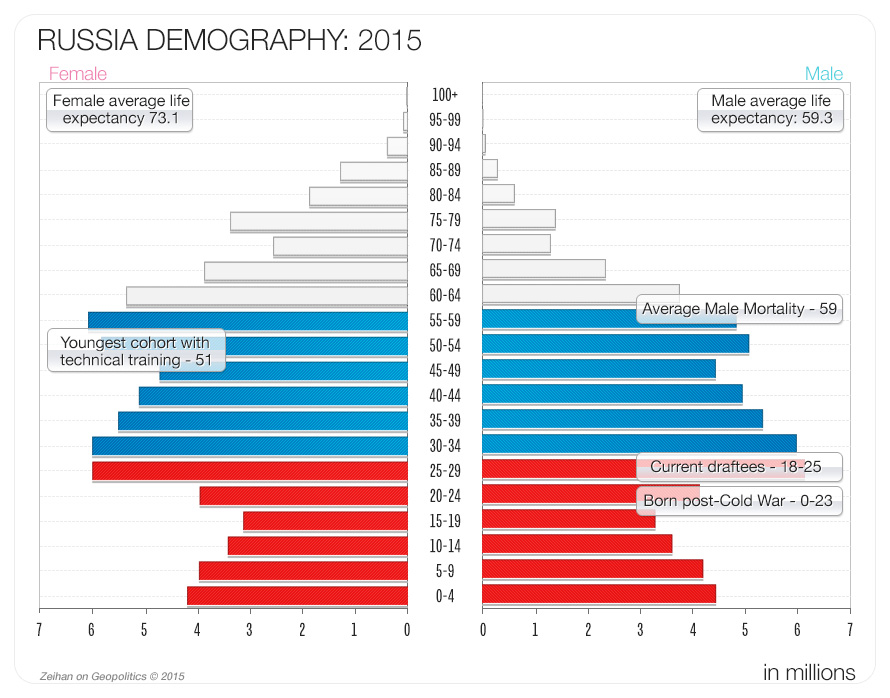
In September 2023, Putin accused the Baltic countries of Nazism, much like Ukraine, before a full-scale invasion. Russia's rhetoric around "denazification" is a code for an attempt to destroy Ukrainian statehood and national identity.
"New meanings and challenges of our time make it clear that while Naziism was defeated in 1945, unfortunately, it was not fully overcome. The heroic portrayal of Nazi criminals and outright Nazi propaganda in the Baltics and Ukraine itself have become commonplace as if Nuremberg never happened," said Putin.
2. NATO will be forced to face Putin's aggression or risk its own demise
Western nations hesitate to fully arm Ukraine, worrying that Putin may escalate. However, caution has risks—perhaps graver ones. A years-long stalemate enabling Russia to regroup and potentially take Ukraine would dangerously embolden Putin, forcing the West to confront hard questions: does NATO still matter if Putin targets Tallinn next? Are the American people ready for a full-scale war with Russia to defend Estonia?
“Putin may well think ‘No. Western behavior shows that they are not willing to die for Tallinn, and I can get away with this,” stated Marcus Walker.
Ukraine's President, Volodymyr Zelenskyy, directly stated that if Russia defeated Ukraine, NATO countries would be the next target.
“If they kill us, if they destroy us, they will occupy NATO countries very quickly, and after that, you will move your soldiers. If you will not move your soldiers to fight for NATO against Russia, NATO will not be,” Zelenskyy told The Sun.

So, the Western countries will either shamefully give up ally after ally in further attempts to appease Russia, or they will fight and send their children to war. What kind of war will it be? A nuclear one, argues Peter Zeihan.
“If you have a mob from Russia crossing the Polish border where they come against a prepared NATO force, if the Russians will suffer 1000 to 1 casualty ratios, it would be a good day for them. But the imperative that they secure this periphery before their population collapses hasn’t gone anywhere. And if they know they can’t do it with conventional weapons, all that’s left is nukes,” explained Zeihan.

3. West will face more instability, as Russia unleashes the Pandora's box of conquest wars
Critics argue that the US exhibits hypocrisy towards Russia, citing military interventions in Vietnam, Iraq, and Afghanistan. While the criticism is fair, the war Russia is waging in Ukraine is a different one, as the US didn't try to turn Iraq into a 51st state.
"This is an old-fashioned war of conquest of trying to conquer another nation-state and make it your territory. This is something we haven't really seen in the world, at least since Stalin and Hitler. In the post-WWII era, the whole idea of the international order was that we no longer do wars of conquest. The war of conquest like this is a throwback and very dangerous," explained Marcus Walker.
“Ukraine today, Taiwan tomorrow” is an oft-heard phrase nowadays on the island of Taiwan and reflects fears of a Chinese invasion. Although Biden repeatedly states America would intervene if China attacks, Beijing may risk an invasion anyway. Under Xi Jinping, China has aimed for inevitable victory in any conflict. China is well positioned militarily with over 2 million active troops, the world's largest military and rocket force, 400+ ships, 3,100 aircraft, and a nuclear stockpile surpassing 400 warheads in 2021.
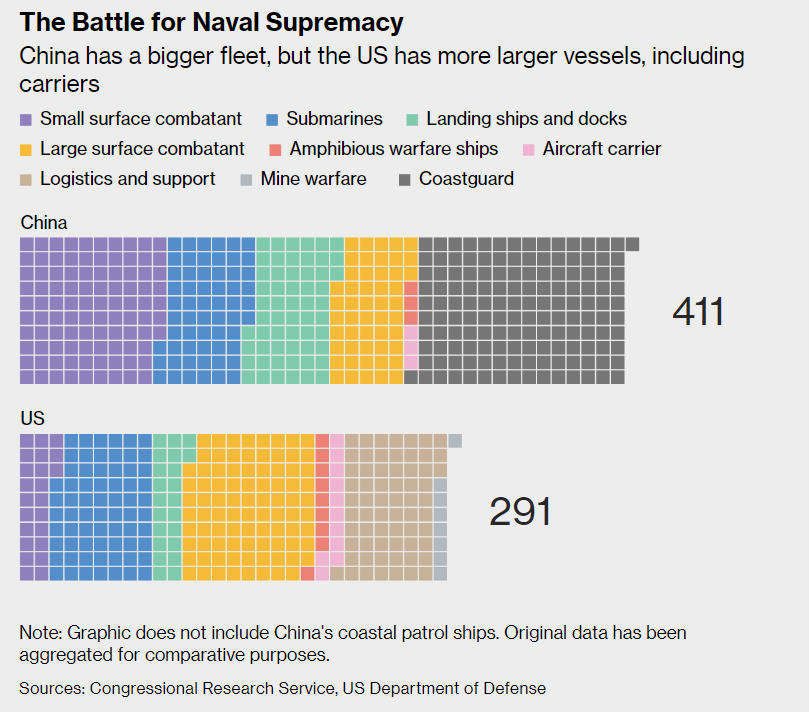
While China's army faces critiques, particularly in translating military hardware into effective combat operations and lacking recent combat experience, these weaknesses might not be decisive if China swiftly overwhelms Taiwan's forces. The US and its allies' response time is crucial, as highlighted in war games assessing a potential conflict over Taiwan.
"The truth is, no one knows how ready they are. Any war would be a long war, probably the most costly since World War II, even if we win," John Culver, a former CIA analyst specializing in China's military, said to Bloomberg.
After the meeting between Xi Jinping and Joe Biden on 15 November in California, the Chinese government asserted that Taiwan's unification with China is "unstoppable."
4. US leadership will be even more challenged
Some in America believe Washington may abandon Ukraine as it did Afghanistan. However, the humiliating US withdrawal from Afghanistan was not just a foreign policy failure - it signaled to Moscow that the US was inconsistent and distracted. This emboldened Russia's aggression against Ukraine. A Ukrainian defeat would be equally disastrous, as dictators thrive on perceived weakness.
The US will face global and domestic repercussions, given its influence. Despite criticism, many countries look up to the US. If the US trends towards discord, disunity, and disarray, it will impact the global economy and security.
America's leadership reputation will suffer, with the public blaming Democrats and lamenting wasted money. A Ukraine collapse before the 2024 election could aid Republicans. However, Ukraine’s fall ensures more wars – whether new European conflicts or a Chinese attack on Taiwan. The next administration would have to convince disillusioned Americans to invest in more wars or even take up arms themselves. Many Republicans recognize this reality.
“I’m convinced that if the Ukrainian military doesn’t stop and repel that Russian invasion, it’s not going to be too long before that Russian army crosses a border that our men and women in uniform are going to have to go and fight [for] under our NATO Treaty,” said former US Vice President Mike Pence.
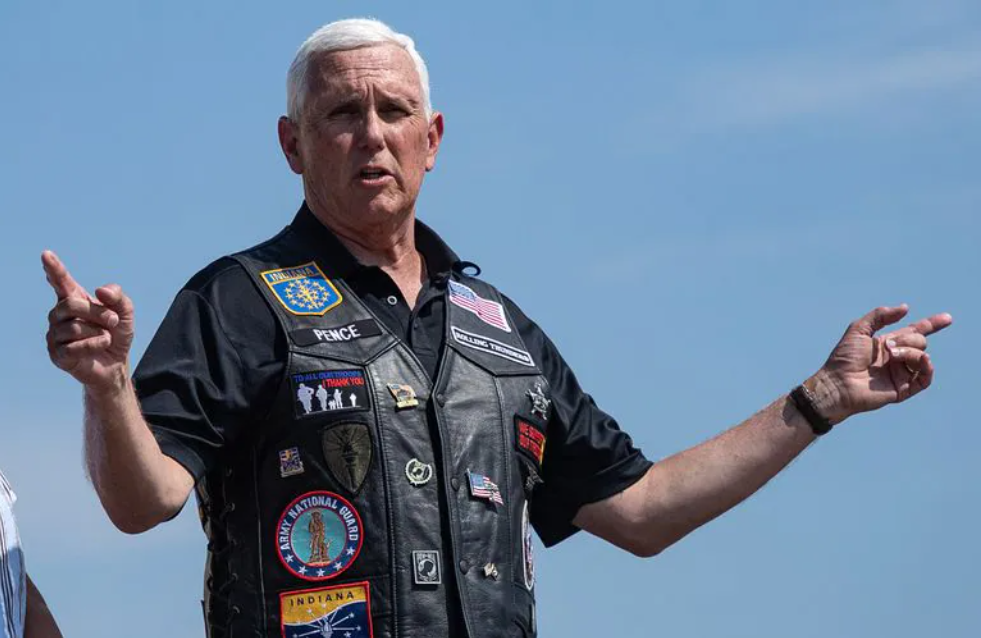
It is really about American credibility and leadership, argues Fiona Hill, former official at the US National Security Council. Even if Americans wanted to isolate, the world is too globalized, and the US has long-standing commitments that outlast previous administrations.
There are also security implications. Russia abandoned its nuclear test ban treaty and may renew testing. If Ukraine fails, the global message is: relying on nukes is essential for protection, discouraging disarmament efforts. This will impact both global and US security.
“We made a commitment to Ukraine, whether people like it or not, back in 1994 with the Budapest accord. We very vaguely called this ‘assurances,’ but translations into Russian and Ukrainian are a bit more emphatic than that about guarantees for Ukraine’s territorial integrity and sovereignty if it gives up nuclear weapons,” reminded Hill on a Spotify podcast.
Upholding such commitments is crucial for US credibility.

The West's dilemma
After looking at all the disastrous consequences of Ukraine's potential failure, the editorial staff at Euromaidan Press is still far from thinking that Western authorities aren't seeing them, too. So what is going on?
Ukrainian commentator Valeriy Pekar argues that Western elites are deeply concerned about three possible scenarios:
- Ukraine's defeat: This would signify a political failure for all those who supported Ukraine, potentially strengthening the global authoritarian axis. There's a high likelihood of Russia's aggression spreading in Europe and the onset of the Chinese attack.
- Russia's defeat: This would lead to disintegration, collapse, a humanitarian catastrophe, uncontrolled nuclear proliferation, and excessive strengthening of China.
- Protracted war: This would result in societal fatigue and intensified domestic conflicts in the West, and ultimately, Ukraine's defeat with the abovementioned consequences.
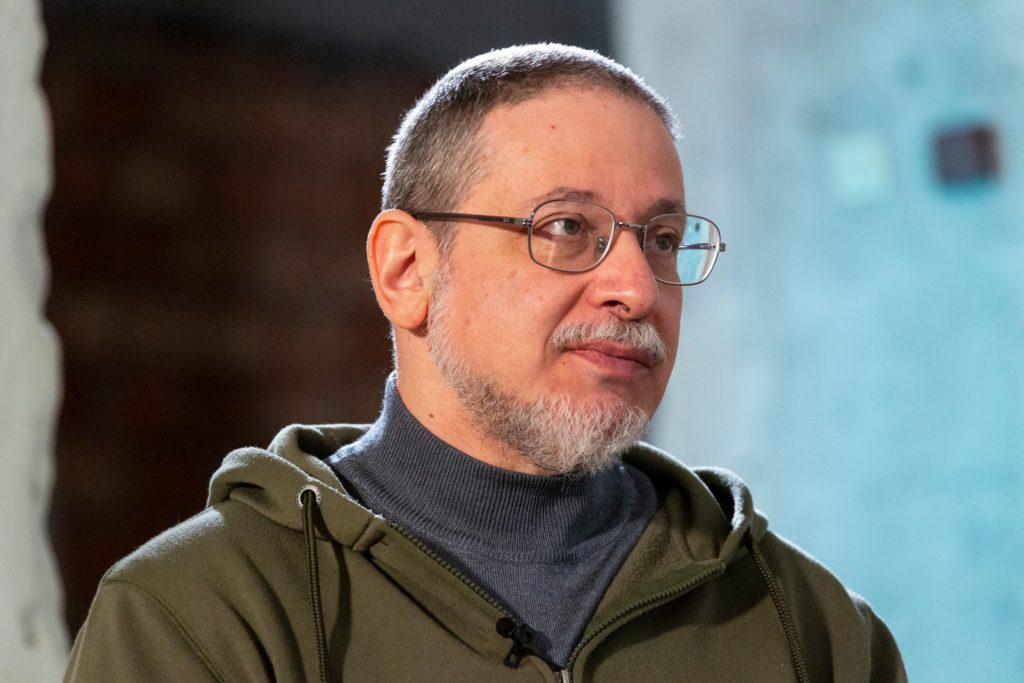
Given these undesirable outcomes, the West hopes for an extraordinary event (e.g., Putin's death) while trying to freeze the conflict through negotiations. However, even if successful, freezing would only delay the problem, as Russia never adheres to its promises. The occupied territories would become a launching pad for a new offensive.
"The fundamental difficulty facing Ukraine in reaching any peace is that Putin has serially broken treaties and deals he made and deals that Russia made before him. In early 2000, he signed a treaty that exactly delineated the land border between Russia and Ukraine, which is now violated because he is now claiming large swaths of Ukraine as Russian regions," explained Marcus Walker.
Indeed, in order to prevent this war from becoming an endless vicious cycle, a lasting peace is needed – one where Russia never threatens Ukraine again. Such an outcome cannot be achieved without military means Ukraine needs to protect itself, Europe, and the world.
Read more:
- Stoltenberg: More arms for Ukraine means quicker war end
- Lloyd Austin: Ukraine war will "define global security for decades"
- Integration of Ukraine into NATO, WWIII-Free: Strategic guide by Kurt Volker

